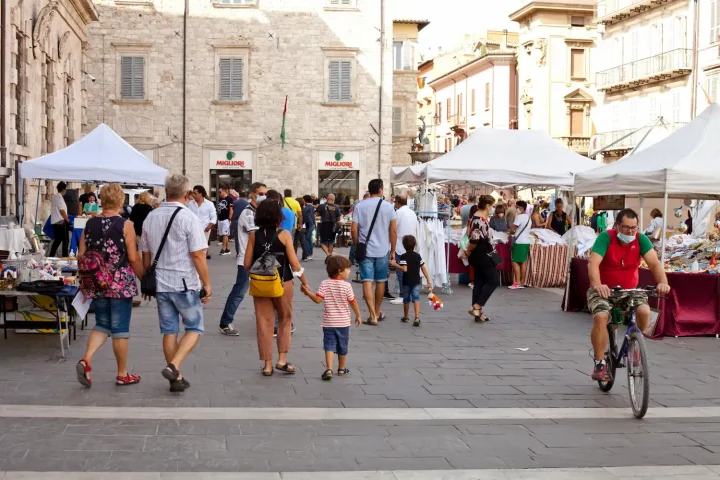Italy is a dream destination for many foreigners, whether for its rich cultural heritage, breathtaking landscapes, or economic opportunities. For those aiming to live in Italy and eventually acquire Italian citizenship, obtaining a permesso di soggiorno is a crucial first step.
This residence permit not only allows legal residence in Italy but also serves as a foundation for navigating the path to citizenship. Here, we’ll delve into what the permesso di soggiorno entails, its types, requirements, and how it interlinks with the process of obtaining Italian citizenship.
What is Permesso di Soggiorno?
Italy is part of the Schengen Agreement, which means U.S. citizens can stay in Italy without a visa for up to 90 days within any 180-day period. The permesso di soggiorno is a residence permit issued by Italian authorities, granting foreigners the right to live in Italy for anyone who wishes to stay in Italy for more than 90 days.
Based on the purpose of your stay, there are several types of permesso di soggiorno, including:
- Work permit: For individuals employed in Italy, whether under a contract or as self-employed professionals.
- Study permit: For students enrolled in Italian universities or educational institutions.
- Family reunification permit: For individuals joining family members already residing in Italy.
- Elective residency permit: For retirees or financially self-sufficient individuals looking to reside in Italy without working.
Each type of permit has its own requirements, but all serve the same function—to ensure legal residence in the country.
Take advantage of specialized assistance to secure your passport for a borderless future.
Required documentation for Permesso di Soggiorno
To apply for a permesso di soggiorno, applicants must provide a set of documents that justify their reason for staying in Italy. The typical documentation includes:
- A valid passport with adequate validity to cover the duration of the permit.
- Proof of income or financial means to support oneself during the stay.
- Health insurance coverage for the period of residence.
- Evidence supporting the purpose of the residence, such as a work contract, university enrollment letter, or proof of family ties.
The process often requires translating and legalizing documents issued outside of Italy to ensure they meet the country’s legal standards.
How Permesso di Soggiorno relates to Italian citizenship
The permesso di soggiorno plays a vital role in bridging the gap between legal residence and citizenship. Here’s how it connects to the process of becoming an Italian citizen:
- For descendants of Italians: Individuals of Italian descent residing in Italy and waiting for citizenship recognition often rely on a permesso di soggiorno. This permit allows them to live legally in Italy while their ancestral claim is reviewed.
- Continuous residency requirement: For those seeking citizenship through naturalization (e.g., foreigners residing in Italy for ten years), the permesso di soggiorno ensures compliance with the requirement for uninterrupted legal residence in the country for 10 years.
Advantages of regularizing residence in Italy
Obtaining and maintaining a permesso di soggiorno offers significant benefits, not only for those pursuing citizenship but also for improving their overall quality of life in Italy:
- Access to public services: A permesso di soggiorno grants access to Italy’s robust public services, including high-quality healthcare and education.
- Mobility within the European Union: A permanent permesso di soggiorno, also known as the Carta di Soggiorno, extends its benefits beyond Italy. This permit facilitates travel within the Schengen Area.
Challenges and overlooked importance of Permesso di Soggiorno
Despite its significance, the importance of the permesso di soggiorno is often underestimated by individuals focusing solely on obtaining citizenship. Many applicants face challenges such as:
- Delays in processing: The process of applying for and renewing the permesso di soggiorno can take time, requiring patience and persistence.
- Compliance with requirements: Failing to meet the financial or documentation criteria can result in application rejection or renewal denial.
These hurdles underscore the importance of approaching the process with preparation and attention to detail. Whether you are a worker, student, family member, or descendant of Italians, this permit ensures that you can reside legally in the country, access public services, and comply with residency requirements for naturalization.
For descendants of Italians, the permesso di soggiorno provides a lifeline while waiting for citizenship recognition, allowing them to immerse themselves in Italian life and culture. For those seeking naturalization, it is an essential step in proving continuous and legal residence.In conclusion, the permesso di soggiorno is a cornerstone of the Italian immigration system.
It is not merely a formality but an essential tool for unlocking opportunities, rights, and, ultimately, the chance to call Italy home. To ensure a smooth process, it’s advisable to seek expert guidance and prepare thoroughly.






